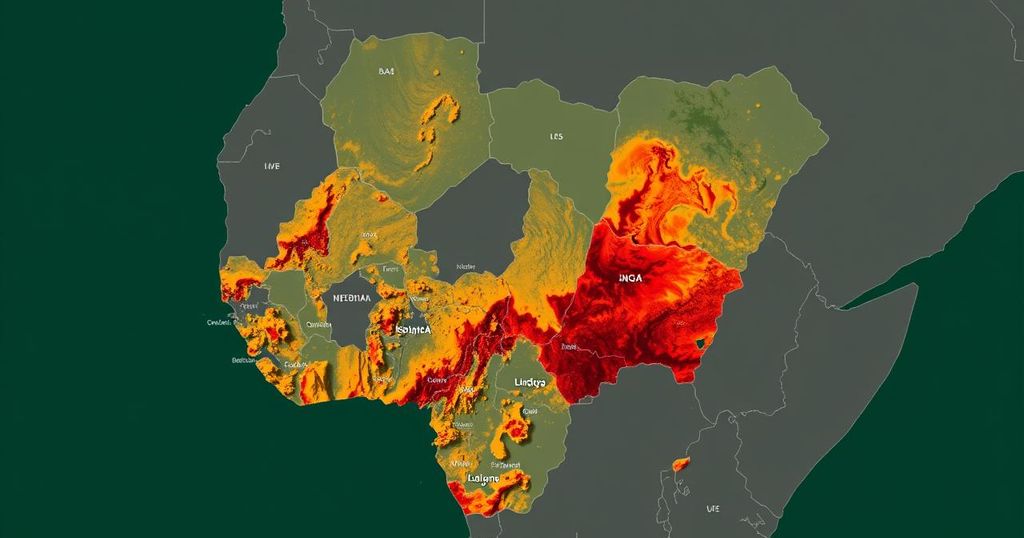The combination of climate change and armed conflict in northeastern Nigeria has led to a severe increase in malnutrition rates, particularly among children, with a reported 24 percent rise in cases. This situation is fueled by the dislocation of farming activities due to violence and devastating climatic events, which could leave over six million people facing food shortages.
The ongoing conflict in northeastern Nigeria, compounded by the adverse effects of climate change, has led to a significant rise in severe malnutrition cases, particularly among children. The International Committee of the Red Cross (ICRC) has reported a 24 percent increase in malnutrition among young children in the region since the previous year, indicating a critical food insecurity situation affecting families in the Lake Chad area. One poignant account comes from Rabiatu Jubrilla, who described the plight of her son upon his visit to an ICRC stabilization clinic. She recounted, “He was healthy when I delivered him, but at 1 year 9 months old, I stopped breastfeeding him. He began to lose weight, and we thought it was because he was not able to get breast milk.” The protracted armed conflict has severely hampered agricultural activities, resulting in the displacement of millions and the destruction of livelihoods. Farmers, such as Paul Ezra from Madagali village, have been unable to work their fields due to the dangers posed by armed groups like Boko Haram, who have seized control of the lands. Ezra lamented, “We don’t have enough farmland. Before, we used to go out in the fields to farm. But now, Boko Haram and other armed groups have taken over the bush.” Significantly, the violence has escalated, with fighting in the Lake Chad region increasing by 58 percent in the first half of 2024. The situation is further exacerbated by the region’s dependence on subsistence farming, which makes it particularly susceptible to climate change effects, such as irregular rainfall. Additionally, severe flooding has devastated agricultural potential this year, washing away seeds and destructive expectations for a viable harvest. This is evident from concerns raised by farmer Abubakar Bello Duhu, who stated, “We have people who fainted and are at the hospital. Others have died because there is not enough to eat.” The ICRC estimates that over six million individuals in the Lake Chad region are likely to face food shortages in the coming months as a direct consequence of ongoing conflict and climate change impacts.
The issues surrounding food security in Nigeria, particularly in the northeastern region, are closely tied to the dual challenges of armed conflict and climate change. The protracted violence, primarily associated with groups like Boko Haram, has led to immense displacement and instability, restricting access to essential agricultural resources. Subsistence farming remains the primary means of sustenance for many regional inhabitants, making them highly vulnerable to climate-related adversities, including fluctuating weather patterns and natural disasters such as flooding. The alarming statistics regarding malnutrition reflect the urgent need for intervention and support for families affected by these conflicts and climatic changes.
In summary, northeastern Nigeria faces a dire humanitarian crisis exacerbated by armed conflict and climate change, leading to a distressing rise in malnutrition, particularly among children. The displacement of families and destruction of farmland have significantly hindered food production, resulting in grave food insecurity. As highlighted by numerous accounts of affected families, the situation calls for immediate attention and strategic responses to alleviate the suffering and prevent further escalation of malnutrition rates in the Lake Chad region.
Original Source: www.africanews.com






